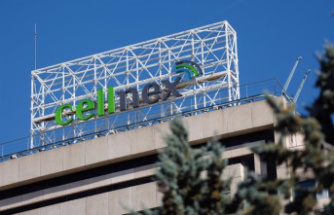With American Heart Month under way, one important topic is improving access to innovative therapies for patients suffering from cardiovascular disease (CVD).
When prescribed a medication by a physician, most individuals expect to receive the medication without jumping through hurdles. However, for many people affected by cardiovascular disease across the country, this is increasingly not always the case.
According to Symphony Health Solutions, commercial payers deny up to 90 percent of initial claims submissions for patients with CVD, with the final rejection rate for patients at 73 percent.
Many of these patients who are rejected have high cholesterol and/or familial hypercholesterolemia (FH), which is an inherited form of significantly high cholesterol and one of the most common genetic diseases, affecting at least one in every 200 to 500 people.
Thus, these patients are exploring new treatment regimens because they have not been able to get their low-density lipoprotein cholesterol (LDL-C), or "bad" cholesterol, under control despite treatment with a statin -- the current standard of treatment.
Additionally, many patients living with atherosclerotic cardiovascular disease (ASCVD), which is caused by a buildup of cholesterol-rich plaque in the arteries, are unable to get their LDL-C under control with current treatment options.
With CVD being a major public health concern in the U.S., it is imperative to lower bad cholesterol for patients who have already had a cardiovascular event, like a heart attack or stroke, as well as patients with FH who require additional treatment options to lower their LDL-C levels along with their statin.
Yet, there is a growing concern that many patients with uncontrolled LDL-C levels continue to face challenges in accessing PCSK9 inhibitors their physicians have prescribed based on the approved indication. PCSK9 (or proprotein convertase subtilisin/kexin type 9) inhibitors are human monoclonal antibodies that block the protein PCKS9, which prevents the body's natural system from eliminating "bad" cholesterol (low-density lipoprotein cholesterol or LDL-C) from the blood.
While the U.S. Food and Drug Administration carefully determined which patients would be appropriate for PCSK9 therapy given the clinical trial information, many payers have implemented restrictive prior authorization processes using stringent utilization management criteria, which is resulting in many patients being denied access.
This is not unique to PCSK9s though; we have seen these restrictive authorization practices affecting patients seeking hepatitis C and heart failure treatments as well.
Being denied access to the medicine you are prescribed is tremendously frustrating and can leave patients feeling hopeless. However, it is important to know that, as a patient, there are certain things you can do to take action if this happens to you:
Now is an opportune time for patients to be aware of the options available, especially when they are denied access to treatments prescribed by their physicians.
In keeping with the spirit of American Heart Month, make wellness a priority. If you or a loved one suffers from CVD, talk with your physician to ensure you are receiving the appropriate medical care. For more information, visit www.advancecardiohealth.org.
Our editors found this article on this site using Google and regenerated it for our readers.













